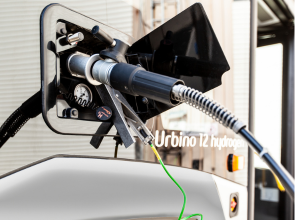20 airlines pledge using new technologies, including hydrogen
Airlines aims to support new forms of propulsion such as electric and hydrogen-powered planes and call for governments support.

Twenty airlines, members of the World Economic Forum’s Target True Zero initiative, today (10th November) have committed to employing new technologies, such as electric, hydrogen and hybrid aircraft, to address the challenge of climate change.
They have pledged to adopt new technologies into the global fleet through either new aircraft design or the retrofitting of conventional aircraft to reduce the climate impact of their operations. The 20 airlines operate over 800 aircraft and carry over 177 million passengers on 1.8 million flights annually. The members have made commitments:
- Working towards 30% of aircraft that serve routes of 750 km or less that are added to their fleets from 2030 onwards employ novel propulsion technologies.
- To decarbonise longer-range aircraft, once this becomes technologically and economically viable.
- The signatories called on aerospace manufactures to prioritise innovation that will allow them to meet these goals.
- Urged governments to establish policies to provide incentives for operators to adopt these technologies and address the infrastructure issues needed to support their use in airports across the world.
The Target True Zero Initiative was launched by the World Economic Forum in July 2021, aiming to explore how novel propulsion technology can help address aviation’s climate impacts and how the deployment and scaling of these technologies can be accelerated.
The signatory airlines are:
- Aero
- Air New Zealand
- Air Nostrum
- Alaska Airlines
- Amelia
- ASL Aviation Holdings
- Braathens Regional Airlines
- easyJet
- Finistair
- Icelandair
- Iskwew Air
- Loganair
- Mokulele
- Ravn Alaska
- SoundsAir
- Southern Airways Express
- Surf Air Mobility
- Viva Aerobus
- Waltzing Matilda Aviation
- Xwing
